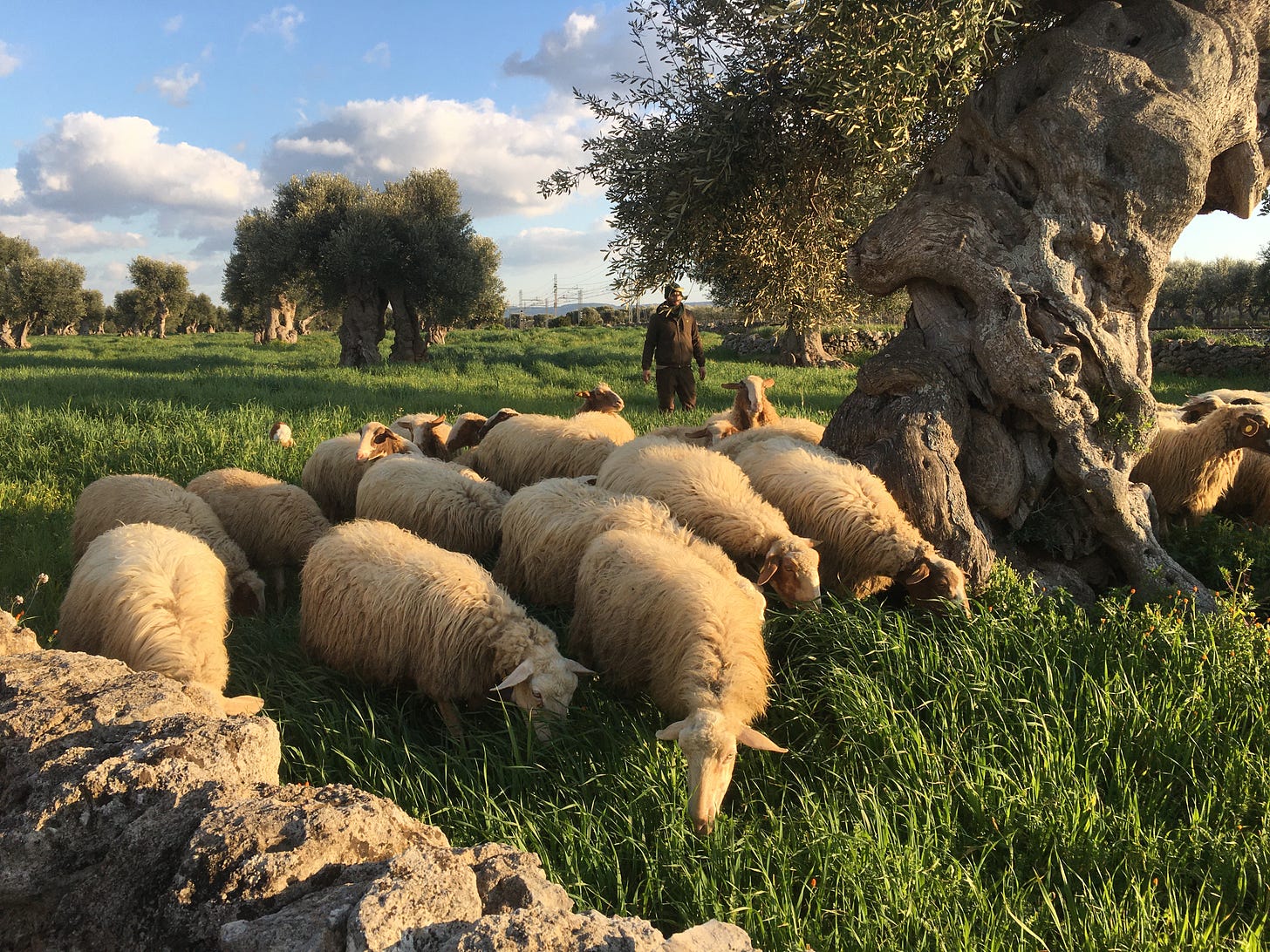Don't Call Me an "Urbanist"
If You Do, We'll Need to Have A Long Talk
Last week, I wrote about my increasing unease with the label “Urbanist,” and promised that I’d explain how my thinking has developed since I wrote Straphanger: Saving Our Cities and Ourselves from the Automobile.
The book was a critique of car culture, and an argument for planning transportation systems around transit and active transport (bicycles, walkability, access for otherly-abled people), rather than around automobiles. Because most population growth around the world is happening in cities, the focus of my research—I visited 14 different cities, from Tokyo to Bogotá, by way of Copenhagen, Philadelphia, and Vancouver—was on, urban areas, with a few forays into suburban and inter-urban transport, especially trains.
In the book, and in the talks I’ve given around the world on the subject since it was published, I based my thinking on the idea that urbanization was a 21st-century megatrend. And it is. The contemporary move to cities is a massive phenomenon, unprecedented in its scale in human history. It’s estimated that 56% of the world’s population now live in urban areas; by midcentury, if the global population reaches 9.8 billion, our current best-guess, 6.9 billion of us—70 percent of the global population—might be urbanites. My attitude has been: if we are indeed moving to cities, let’s get the process right. Cars pollute, kill, and cause cities to sprawl (increasing their impact on nature), so let’s build the kind of transportation—transit—that makes for dense metropolises that are also pleasant to live in.
There seem to be two diametrically-opposed ways of looking at urbanization:
(1) Urbanization is good for us, and the planet. This is the sunny, Pollyanna vision of urbanization, courtesy of the technophiles who style themselves as “ecomodernists,” or sometimes “ecopragmatists.” The idea is that the global move from rural areas to cities lifts people out of poverty (which is seen as being good in itself, because in a development-obsessed world, rural = poor = bad), and allows women to access schools; and educated women almost always have fewer children. Living in urban areas allows governments to streamline services, such as transportation (best case = public transit), energy (best case = electricity from renewable sources), and the aforementioned education (best case = neighborhood schools). Urbanization, from this standpoint, decreases the human impact on ecosystems and amortizes population growth. “Cities occupy just one to three percent of the Earth’s surface,” the authors of An Ecomodernist Manifesto proclaimed in 2015, “[and they] both drive and symbolize the decoupling of humanity from nature, performing far better than rural economies in providing efficiently for material needs while reducing environmental impacts.” Humans, the idea goes, inevitably have a disastrous impact on nature; so the less we’re in contact with nature—and no better technology for concentrating humans has ever been found than the city—the better it will be for the planet.
(2) Urbanization is a disaster for individual happiness, and probably not so good for the planet. Here’s how the counterargument goes: in our Paleolithic, hunter-gatherer days, when a few million Homo sapiens were scattered across the landscape, we could survive, and even thrive (cave-painting, flint-knapping hunter-gatherers being the original “affluent society”) by exploiting wild resources. The Neolithic agricultural revolution, which gave us a relatively stable supply of grains and livestock, drove the development of settlements, cities, and eventually, priests, temples, pharaohs, the Divine Right of Kings, and the whole hierarchy-and-oppression thing. (A more nuanced take on this story, which can be found in The Dawn of Everything by David Wengrow and David Graeber, argues this process wasn’t inevitable: many societies rejected oppression, and stepped away from settlements, slave-holding, and hierarchies; and some urban settlements, including Çatalhöyük in Turkey and Teotihuacán in Mexico were strikingly egalitarian.) Farming may have abetted concentration into cities, but for most of our existence—up until about a century and a half ago—most people survived by producing their own food. There’s obviously no going back to our hunter-gatherer days—the wilds can’t feed the billions now on earth—but the problem with urbanization is precisely that it has decoupled humanity from nature, and the actual carrying capacity of the soil and the water, from which all of our food comes. When there were farming families, and crofters, and peasants on the land, there was some connection between food production and population. The decoupling of soil from population has led us to the tragically deluded conclusion—put forth by British journalist George Monbiot, for example—that we’ll be better off in megalopolises, surviving on protein synthesized from bacteria using massive inputs of hydrogen (“food from the air”) generated by nuclear power. This is actually the culmination of the “enclosure of the commons,” which began with the Industrial Agricultural Revolution (ca. 1700 in Britain), and involved the elites driving peasants off commonly-farmed and -tended land, and driving them into the factories of the city. According to this vision of urbanization, the capitalist project will be complete when we’re all gathered in cities, sustained by Soylent, and the rich will have turned land once occupied by self-sufficient farmers into a nature preserve/safari park for their own enjoyment. The ultimate goal of “re-wilding,” from this point of view, is the final clearance of pesky, obstreperous, dangerously non-dependent farmers and other rural types from what was once the commons.
Where do I stand? Well, my position is shifting. As a life-long city-dweller, I’ve been sympathetic to the urbanization-as-net-benefit take on things. I’ve also tended to credit the Manhattan-centric argument that concentration in cities can decrease per capita carbon emissions1: apartment dwellers, after all, need less energy for heat than people living in standalone suburban or rural homes; transit riders emit less than SUV and pickup drivers. But as somebody who has written three books, and countless articles, about food (including Bottomfeeder, a look at the impact of human appetite on oceans), I’ve spent a lot of time with farmers, orchardists, and livestock-raisers, as well as the hunter-gatherers who have survived into modernity: the fishermen. I’ve seen the kind of citified contempt that is directed at the people who produce our food, and the outright hostility of people who think any kind of livestock-raising is an abomination.
I believe that as fewer of us are actually involved in producing food—and few of us can even say where the food in their fridges or on our shelves comes from—we are reaching the point that we no longer have any idea what is healthy to eat. People in cities may be living longer lives than they did a couple of centuries ago, or in the early Neolithic (though not longer than the hunter-gatherers and foragers), but their healthspans are actually decreasing. The vast majority of people in North America now suffer from some form of metabolic syndrome, which is entirely imputable to a bad diet—eating highly processed foods, and failing to build the diversity in their diets essential to get the micronutrients essential for a long, healthy life. The ecomodernists’ utopia is the ultimate restriction of diversity: a single-source protein pancake, concocted to feed the billions whose existence has been allowed only by a food system that, under their technocratic dominance, has finally been decoupled from any connection to our Terra Madre.
If you were a farmer, wouldn’t you be dismayed by this vision? Many of the food producers I met while researching my latest book, The Lost Supper, instinctively recoiled from this discourse. Most of them detest the industrial turn agriculture has taken, and the way power has been handed to the seed-patent holders, the fertilizer and herbicide manufacturers, and all those who seek higher yields at any cost to the soil and water. But the people who run small mixed farms don’t get the support of urbanites and self-proclaimed urbanists: instead, they are told they are doomed to irrelevance, and it would be better if they gave up and joined the exodus to the city.
Look, deep down I know that being an urbanist doesn’t necessarily mean you’re pro-urbanization; it can also be about trying to get the city-making process right, without necessarily making a judgment about farming or country life. What I’m tired of is the anti-rural bias I detect among so many citified urban gurus, or “thought-leaders,” or whatever you want to call them. The consequence of the failure to engage with rural-dwellers—the ones who produce the food that will be on your table tonight—leads to absurdities like An Ecomodernist Manifesto and George Monbiot’s advocacy of Solar Foods bacteria-pancakes in his book Regenesis.
One last thing. Many people seem to believe that farming as a way of life is already dead. That’s not true, of course. Billions still grow their own food, mostly on family farms that are smaller than two hectares. And remember, as a process, urbanization is reversible. We saw a glimmer of this during the pandemic, when some people, especially in Europe and North America, gave up on cities and decided to try out rural life. In England, some small farmers are putting forth the idea of “agrarian localism” as an alternative to the ambient clichés about global urbanization as an inevitable trend; in France, there is a movement to put millions of peasants back on the land. And around the world, there are people championing small farming done right, under a variety of names: regenerative farming, agroecology, permaculture, traditional ecological knowledge, silvopasturing. They need our support; and the way a city-dweller can support them is to seek out the food they produce, purchase it, and enjoy it—not hard, because it tends to be as delicious as it nutritious.
So, if you insist on thinking of me an urbanist, you better be aware that I’m also a ruralist. I don’t think cities, or city-life, are intrinsically better than life in the country. At heart, I am the ancestor of dispossessed farmers—of Irish and Ukrainians who were forced to leave the Old World, and an autarkic life on the land, by potato famines, sheep-lords, and the elite appropriators of common land. Part of me will always long for that original self-sufficiency, far beyond the reach of the city, with its czars, bureaucrats, priests, and “divinely”-entitled rulers.
This is the case in the developed world, but in Africa and Asia, the move to cities often increases per capita energy consumption; and while relocating to cities may drive down family sizes, it’s far from clear whether well-being increases in the transition from village or farm to shanty town, slum, or, if you prefer, “Arrival City.” And of course, it matters whether the move from country to city is voluntary; in many cases, people are forced to move to urban peripheries because their livelihood has been destroyed by a changing climate, natural disaster, or conflict.







That's ... not *at all* the conclusion I got from Wengrow and Graeber's book. In particular they use the examples of Teotihuacán and the Ukrainian megasites to argue that urbanization doesn't inevitably lead to oppression!
They do make the important point that various cultures tried agriculture and urbanization and decided that it wasn't worth it for various reasons - but these reasons could just as easily be ecological, philosophical, spiritual, political, or what have you.
Or simply because "those people over there do THAT so we do THIS because we're NOT THEM".